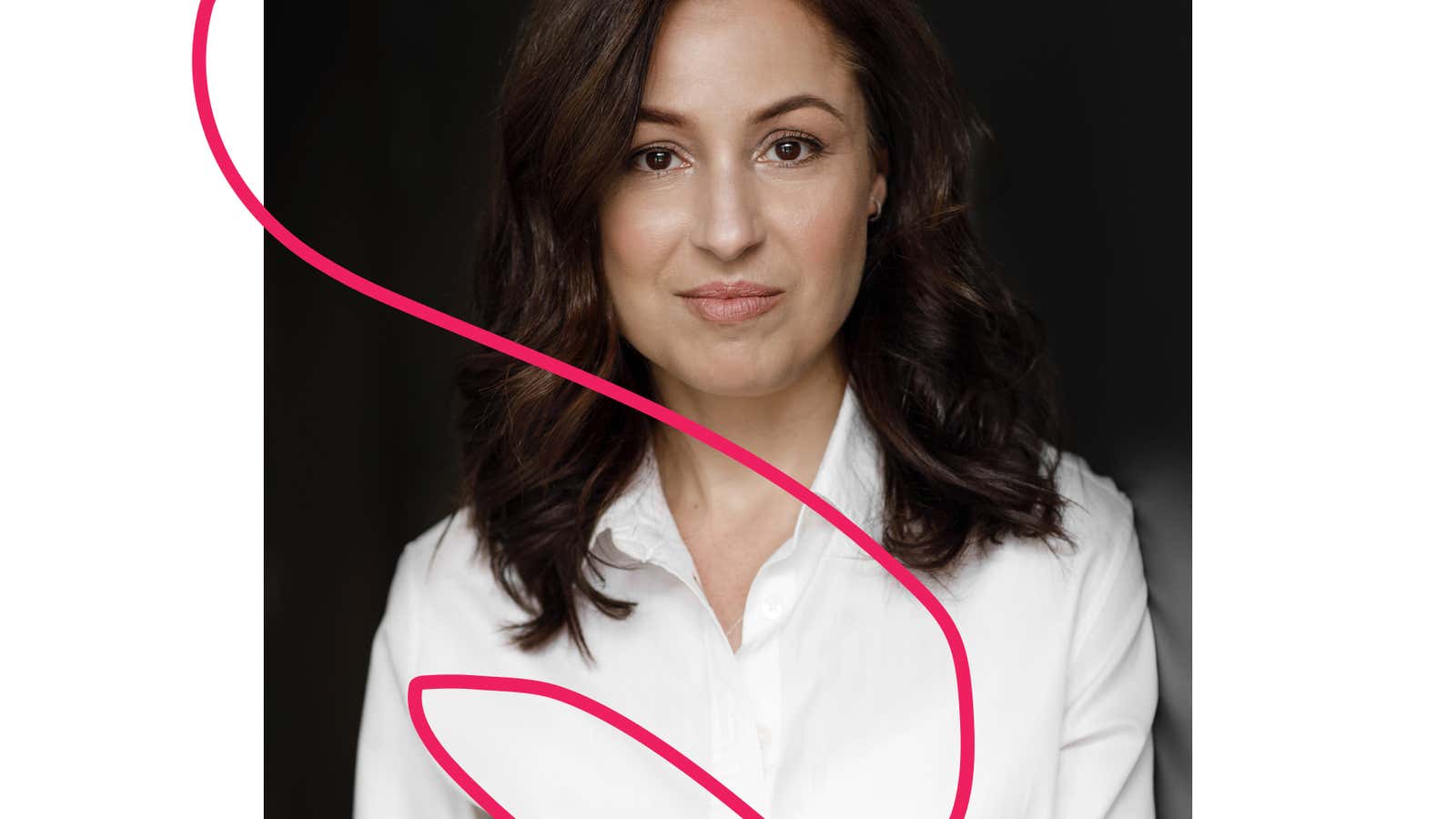By all accounts, Manoush Zomorodi had a successful career: She was the host and managing editor of the popular WNYC podcast Note to Self, where she had creative control and a large community of passionate listeners. But the perfect storm of outside forces, including sexual harassment allegations at WNYC abruptly propelled her into entrepreneurship. In 2018, after six years at WNYC, she left to co-found Stable Genius Productions, a women-led podcast company.
In the second episode of FWD: Thinking podcast (Apple Podcast, Google Podcast, Spotify and Stitcher), I interviewed Zomorodi about entrepreneurship, her relationship with her co-founder, and how to fund a new venture. Together we discuss:
- Why Zomorodi and her co-founder’s first decision was to go to “founder therapy”
- Zomorodi’s realization that she had to step into her power and take agency over her own career
- The way she defines success during the fledgling days of her new company
Going to “founder therapy”
Immediately after quitting WNYC, Zomorodi and Jen Poyant first move didn’t involve finding a co-working space or printing out fancy new business cards. Instead, they went to mediation or “founder therapy” to document the ins and outs of their new partnership. Moving their producer-host relationship to one of equal partnership required the “renegotiating their relationship:”
“At first we weren’t sure about whether we would split the business 50-50. [But her co-founder said,] “No, I want to do this only if we’re 50-50.” And (…) for two newbies who’ve never had a financial partner, there was a lot of education that needed to happen [including the] various ways you can structure a company or how you take profits out of a company. We just didn’t know all that stuff, so that was like a crash course.”
#MeToo and controlling your own destiny
When the sexual harassment allegations rocked WNYC, Zomorodi was quick to point out that she had not experienced “a particular incident or assault or anything like that.” But, the allegations motivated her to seek more control and agency over her own career, which ultimately led her to start Stable Genius:
“To me, it was more (…) about this very thing (…) that manifested for some women in that it wasn’t tied to a specific incident. But it was more an understanding of the lack of information and control that they had had, in terms of having the ability to make their own editorial choices, or access to information regarding revenue, [and] owning their own intellectual property.”
Professional success and the good life
Zomorodi and Poyant are still in the iterative process of figuring out Stable Genius’ business model and how to fund it over the long term. In less than a year, they had a grant fall through at the last minute, they realized the venture capital model didn’t work for them, and they received a grant from Civil, a new cryptocurrency. But for now, the standard of success is pretty straightforward:
“Are you still having fun? Can you both pay the bills? And are you learning something? Do you feel fulfilled intellectually and creatively? [And] are you making the creative thing that you feel good about? So if those boxes are getting ticked, I mean that’s pretty good. That’s a good life, right?”
Subscribe to FWD: Thinking on Apple Podcast, Google Podcast, Spotify and Stitcher
FWD: Thinking is a new podcast about bold professionals who have challenged the status quo to recreate their careers. They’ve grown out of the cracks in the org chart, punched above their titles, and when all else failed, started their own companies. Hosted by Khe Hy and created by Quartz, this podcast traces the blueprints that lead to a more fulfilling work life. Subscribe on Apple Podcasts or wherever you get your podcasts.
